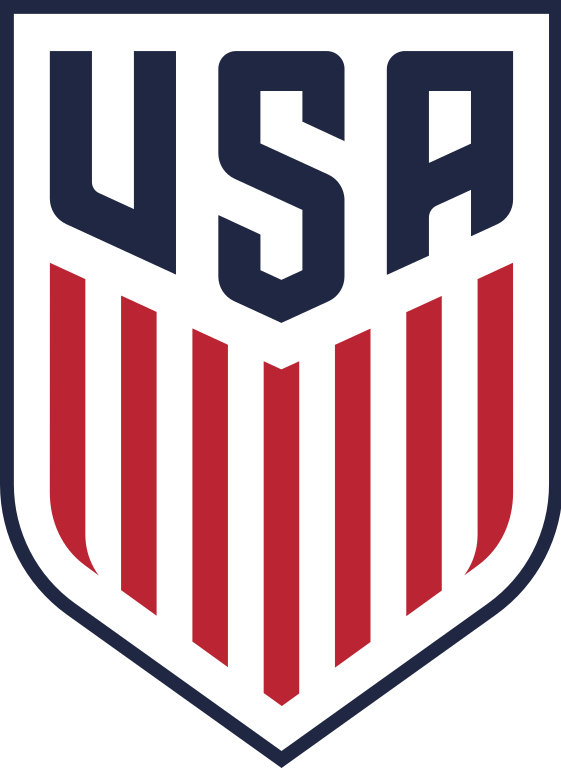By: Brandon Wurl
The United States Soccer Federation (“U.S. Soccer or USSF”) is no stranger to antitrust lawsuits. In 2017, the North American Soccer League (“NASL”) alleged the USSF violated federal antitrust law for conspiring with Major League Soccer to keep NASL from one of the top tiers of domestic soccer.[1] That litigation is still pending in federal court and may go to trial.[2]
Meanwhile, U.S. Soccer now faces a second battle from Relevent Sports Group (“Relevent” or “RSG”) in a separate antitrust suit. Relevent is one of the country’s premier soccer promotion companies, which is owned by billionaire and Miami Dolphins owner Stephen Ross.[3] The group is most famously known for launching the International Champions Cup, a preseason exhibition tournament of eight to eighteen teams that takes place in the United States among foreign clubs. The tournament includes high profile teams such as Tottenham and Real Madrid.[4]
Relevent claims the USSF colluded with the Fédération Internationale de Football Association (“FIFA”) and Soccer United Marketing (“SUM”), Major League Soccer’s marketing arm, in preventing efforts to schedule regular season professional matches between foreign clubs in the United States.[5] This follows Relevent’s redacted suit in the New York Supreme Court earlier this year, when the USSF refused to sanction a league match between two Ecuadorian league teams in Miami, Florida.[6] U.S. Soccer questioned whether Relevent’s match agent is properly certified to promote the match.[7] However, Relevent contends U.S Soccer’s decision to refuse sanctioning their match is part of a much larger battle between two high profile sports promoters, RSG and SUM, with U.S. Soccer heavily favoring their business partner.[8] The group now seeks an injunction and damages against USSF.[9]
According to U.S. Soccer’s operating procedures on international matches, any entity wishing to promote and schedule a match between international teams on U.S. soil must first apply and receive the required approval as a “sanctioned match” from the federation.[10] This is done in conjunction with FIFA’s match agents.[11] FIFA’s bylaws describe match agents as those that confer upon the holder, in this case U.S. Soccer, a license and the exclusive right to arrange friendly matches or international tournaments.[12] Therefore, U.S. Soccer and FIFA have exclusive control on what matches are played within the United States. Not only do they determine the teams that participate, but also the entity that puts on the match.
The decision making to approve and sanction matches lends itself to a strong argument of anticompetitive match fixing. Section 1 of the Sherman Antitrust Trust Act prohibits contracts, collusion, or combination thereof between parties in exercising anticompetitive agreements.[13] Coincidentally, the marketing arm tied to Major League Soccer and U.S. Soccer, SUM, will have made payments in excess of $300 million to the USSF for its role in commercial activities, including promoting international matches.[14] This pales in comparison to Relevent, who will pay just $23 million to the USSF for international match licenses.[15] These numbers would indicate a strong economic incentive for U.S. Soccer to exercise its sanctioning authority and further restrict others outside of SUM to promote and carry out international matches.
However, antitrust law in the sports context is complicated. Professional sports leagues have been involved in lawsuits that escaped antitrust liability because of their single-entity structure.[16] Leagues will create agreements as a wholly owned subsidiary with third parties to establish marketing or digital media rights reflecting unilateral conduct rather than concerted conduct.[17] Granted, a professional sports league is much different than a national federation. A federation under a National Sports Governing Body, like the USSF, is still subject to adjudication if it violates U.S. law. It is further complicated when it involves an international governing body, such as FIFA.
The question then becomes the extent to which the policy of restricting official international league matches subjects itself to domestic antitrust violations. One answer is extraterritorial jurisdiction. Extraterritorial jurisdiction is not uncommon in regulating transnational anticompetitive practices.[18] In fact, most recently as 2015, the United States employed this reach against FIFA in a bribery scandal that led to fourteen indictments of foreign FIFA officials by the U.S. Department of Justice.[19] While done before, there are concerns about exercising the long foot of American justice. Reactions to those arrests in 2015 varied around the world. Russia, for example, accused the United States of unlawfully applying legal jurisdiction “far beyond its borders.”[20] The Brazilian soccer federation said it was fully supportive of an investigation into corruption.[21]
Time will tell if this lawsuit will have the same impact of breaching legal barriers. Here, the case is still in the beginning stages of litigation following Relevent’s complaint filed in September. A finding against U.S. Soccer, in collusion with FIFA, will certainly change the dynamic of how professional matches are organized stateside. Moreover, it could severely damage the U.S. relationship with FIFA as it looks to host World Cup competitions and other international tournaments going forward.
[1] Robert Litan, Possible Outcomes From the NASL’s Antitrust Lawsuit Against U.S. Soccer, The Athletic (Sept. 24, 2019), https://theathletic.com/1234611/2019/09/24/possible-outcomes-from-the-nasls-antitrust-lawsuit-against-us-soccer/.
[2] Id.
[3] Miki Turner & Paul Tenorio, How Relevent Sports’ Federal Suit Against U.S. Soccer Could Change How League Games are Sanctioned, The Athletic (Sept. 10, 2019), https://theathletic.com/1200304/2019/09/10/relevent-sports-us-soccer-federal-lawsuit/.
[4] Michael LoRé, 2019 International Champions Cup Deemed ‘Biggest and Best’, Forbes (Aug. 15, 2019, 10:13 AM), https://www.forbes.com/sites/michaellore/2019/08/15/2019-international-champions-cup-deemed-biggest-and-best/#73477cf4e3b3.
[5] Miki Turner & Paul Tenorio, How Relevent Sports’ Federal Suit Against U.S. Soccer Could Change How League Games are Sanctioned, The Athletic (Sept. 10, 2019), https://theathletic.com/1200304/2019/09/10/relevent-sports-us-soccer-federal-lawsuit/.
[6] Ronald Blum, Promoter Files 2nd Lawsuit Vs. U.S. Soccer Over Sanctioning, The Associated Press (Sept. 9, 2019), https://www.apnews.com/495c681030fb485089549eaf3e63f4e5.
[7] Kevin Draper, Relevent Sports Sues U.S. Soccer, Escalating Fight Over Sanctioning, N.Y. Times (Apr. 22, 2019), https://www.nytimes.com/2019/04/22/sports/relevent-sports-us-soccer-lawsuit.html.
[8] Id.
[9] Mike Leonard, U.S. Soccer Sued Over Ban on Foreign Matches in U.S., Bloomberg Law (last updated Sept. 10, 2019, 2:09 PM), https://www.bloomberglaw.com/document/X80TU2P8000000?bna_news_filter=mergers-and-antitrust&jcsearch=BNA%25200000016d1b89df36a5ef1bd9eb490001#jcite.
[10] U.S. Soccer, Operating Procedures: Hosting of International Matches and Tournaments, https://www.ussoccer.com/federation-services/international-games/operating-procedures.
[11] FIFA Governance Regulations: Match Agents and Intermediaries (2019), https://resources.fifa.com/image/upload/fifa-statutes-5-august-2019-en.pdf?cloudid=ggyamhxxv8jrdfbekrrm.
[12] Id.
[13] 15 U.S.C. § 1
[14] Grant Wahl, Soccer United Marketing Fact/Fiction: Garber Opens Up on SUM’s Role in U.S. Soccer, MLS, Sports Illustrated (Jan. 25, 2018) https://www.si.com/soccer/2018/01/25/sum-soccer-united-marketing-garber-gulati-carter.
[15] Mike Leonard, U.S. Soccer Sued Over Ban on Foreign Matches in U.S., Bloomberg Law (last updated Sept. 10, 2019, 2:09 PM), https://www.bloomberglaw.com/document/X80TU2P8000000?bna_news_filter=mergers-and-antitrust&jcsearch=BNA%25200000016d1b89df36a5ef1bd9eb490001#jcite.
[16] See Fraser v. Major League Soccer, 97 F. Supp.2d 130, 139 (D. Mass. 2000).
[17] Irwin Kishner, One MLS: The Benefit of a Reemergence, Herrick Feinstein LLP (Apr. 2015), http://www.herrick.com/publications/one-mls-the-benefit-of-a-reemergence/.
[18] Matthew Oresman, The FIFA Scandal: The Long Foot of American Justice, Bloomberg BNA (June 11, 2015), https://biglawbusiness.com/the-fifa-scandal-the-long-foot-of-american-justice/.
[19] Id.
[20] World Reacts to FIFA Indictments, VOA News (May 27, 2015 03:38 PM), https://www.voanews.com/usa/world-reacts-fifa-indictments.
[21] Id.



